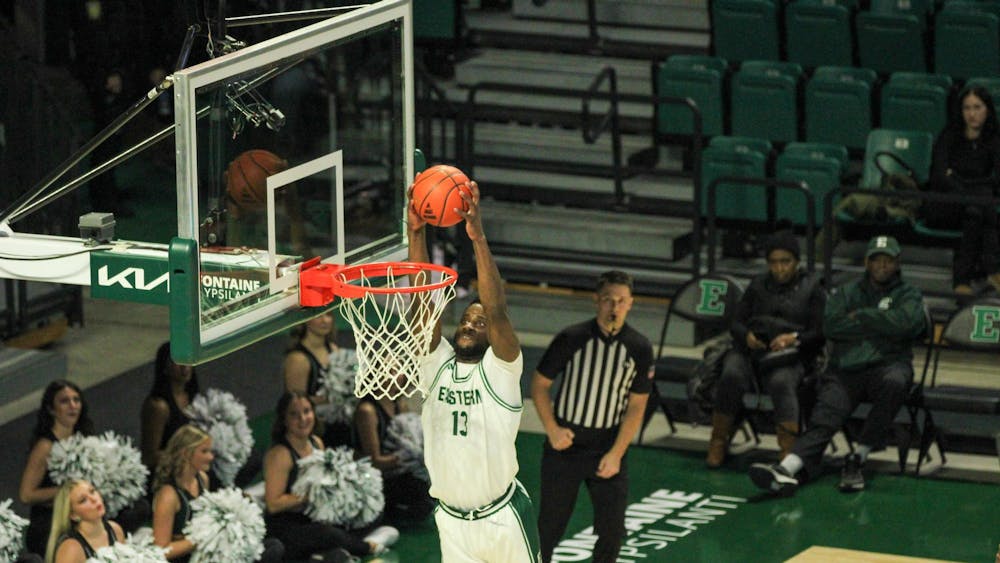Ted Swedenburg, a professor of anthropology at the University of Arkansas, came to Eastern Michigan University to deliver a lecture Monday about “Youth and Popular Music in the Arab World.”
At the latest lecture in the Perspectives in the Middle East series, sponsored by the Division of Academic Affairs, EMU history professor John Knight introduced speaker Swedenburg by saying, “Ted is one of those annoying scholars.”
So why is he “one of those annoying scholars”? Knight says it’s because what Swedenburg is publishing is not only important and interesting, but it is also in many ways “cutting edge.”
Swedenburg’s book “Memories of Revolt: The 1936-39 Rebellion and the Palestinian National Past,” made use of oral histories before many scholars caught on to this form of information. Given the current interest in the Middle East, the studies he’s working on are important – and his focus on youth culture and popular music certainly makes it interesting.
When Swedenburg took the podium, he accepted this indirect praise modestly, saying, “It’s very embarrassing.”
He went on to talk about the role of youth culture in Middle Eastern cultures. According to Swedenburg, the rapidly-growing youth population in Middle Eastern cultures – with people from ages 15-24 accounting for approximately 20 percent of the population – is in many ways indicative of the work of modern forces.
In many ways, Swedenburg said, the presence of the individualistic Western values has conflicted with the view of youth as “vulnerable innocents.” He then discussed the role of music in this scene.
The first thing he discussed was the role of music videos, or “music clips.” In addition to explaining these are one of the most popular genres of music, he examined the controversy caused by the more “Western” behavior of some of the women stars – particularly Egyptian and Lebanese stars like Haifa Wehbe.
Swedenburg then discussed Algerian Rai music, which he termed “the rock and roll of Algeria,” with all the rebellious undertones included. He talked about the use of lyrics to rebel against societal constraints, but also the artistic fusion occurring in Rai, its spirit of experimentation and its “participation in youth culture” in general.
The third genre of music Swedenburg used to examine the scene of Arab popular music was Palestinian Rap. While he addressed the political involvement this style of rap often shows, he also stressed “it has other dimensions; their lives aren’t simply about knocking on the wall.”
One of the things he addressed in each section was the way Western cultures were presented in each type of music. In Rai the spirit of participation in youth culture, he said, was accompanied by a presentation of Western cultures as positive. The Palestinian rappers, he said, identified with old-school hip hop and the “ghetto marginality.”
However, Swedenburg’s major points tended to align with the statement he made about Palestinian Rap – the music of the Arab world is “not simply political.”
He encouraged people listening to this music to see the musicians “as human beings and artists.”
As such, this lecture fits well into the series. Professor Martin Shichtman of the English department organized this lecture. He said the Middle East is an “integral spot of world politics,” and the lecture series’ goal is to “acquaint the EMU community with issues in politics.”
Yet, often the only view people get is the “Arab world as we see it on the news,” Shichtman said.
However, he thought it important to build this bridge with the Arab community, to what Swedenburg has proved a “vibrant youth culture.”









